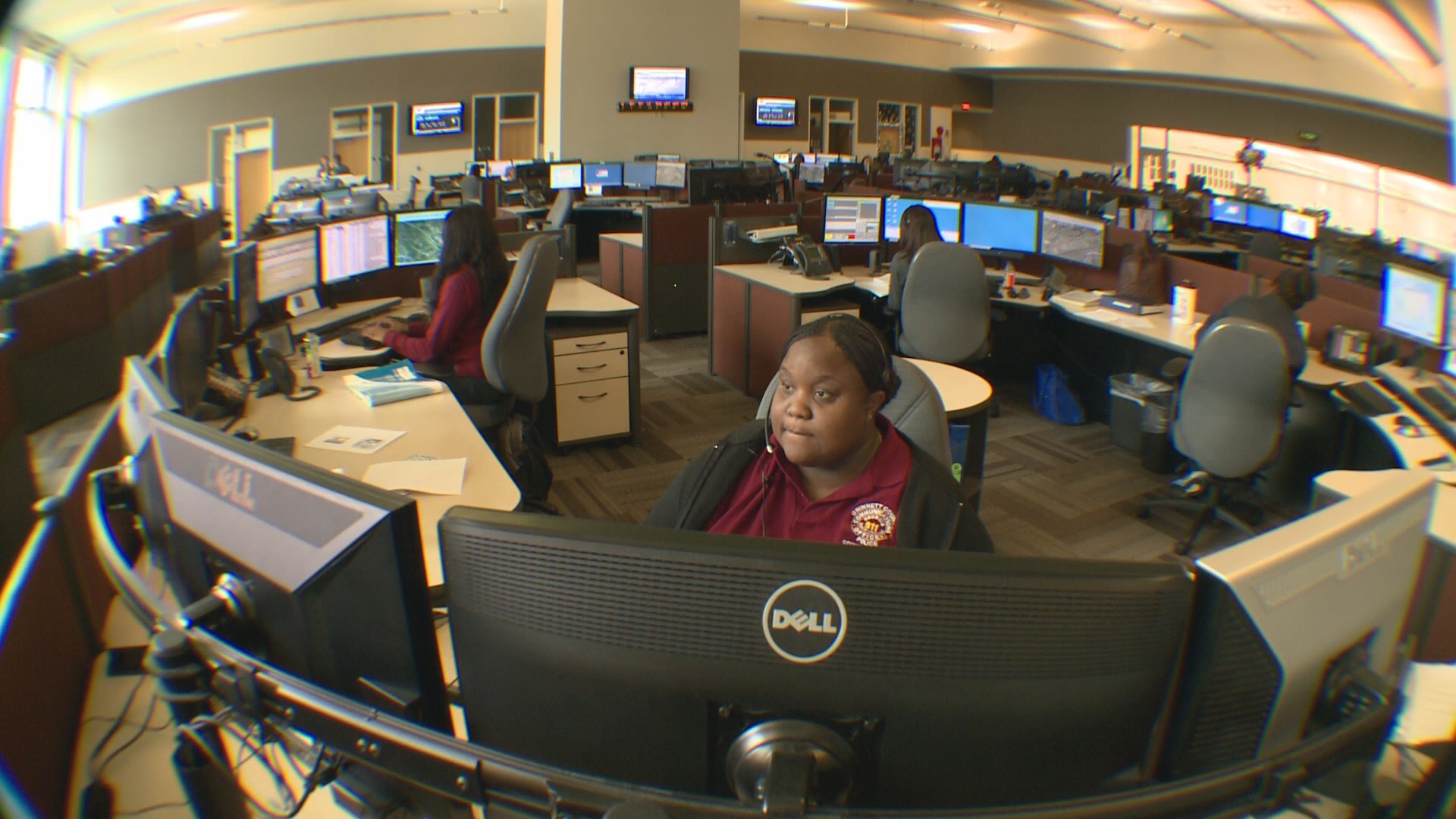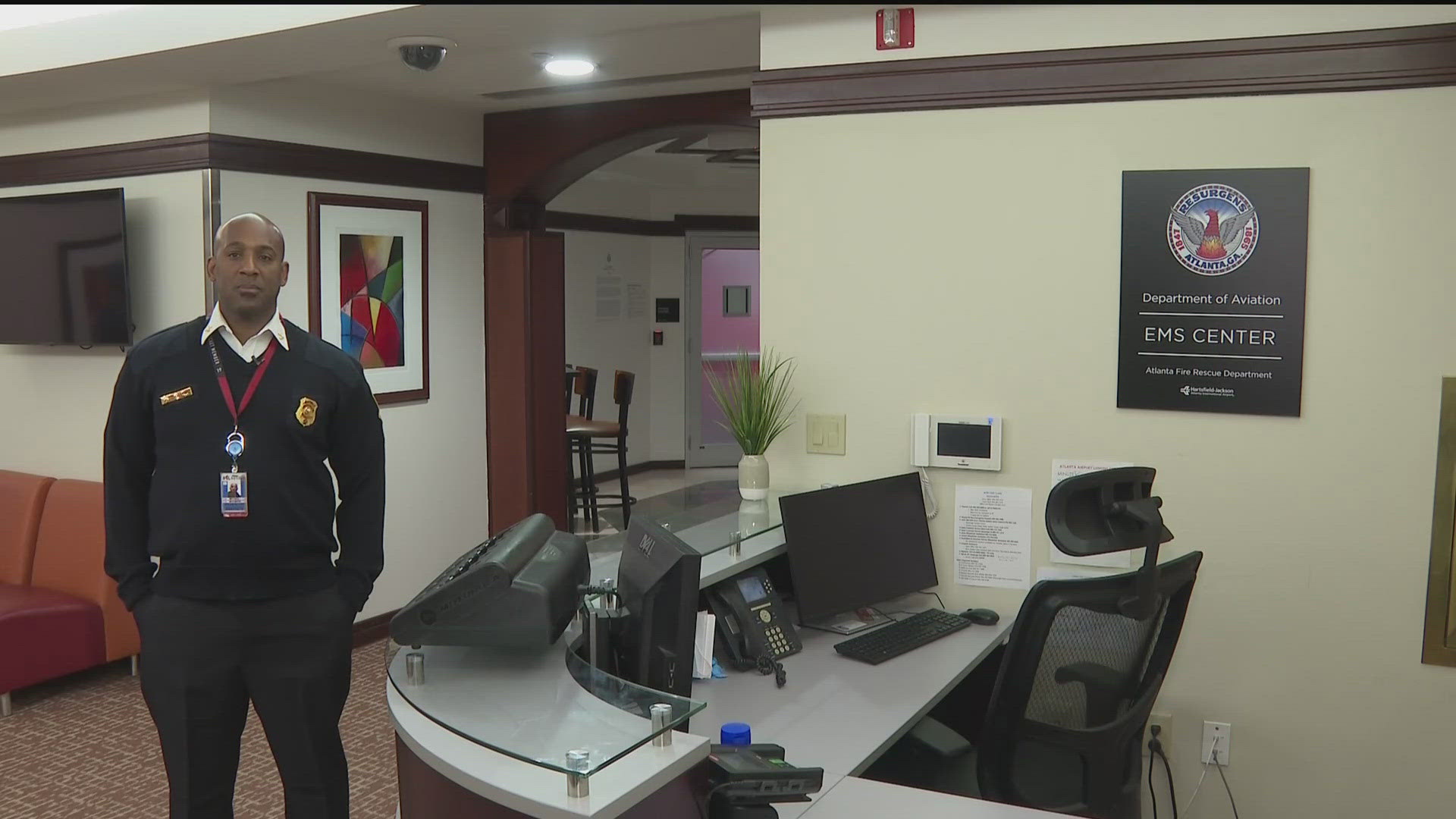ATLANTA (WXIA) -- Everyone wants to pick up the phone, dial 911 and immediately get someone on the other end of the line. Even 911 operators want to see that happen.
But there are several barriers from technology to turnover that can get in the way.
In February, Fulton County put a new call system online and saw response times drop slightly as staff got up to speed. New technology also tends to mean more monitors delivering more information faster.
“Not everyone can multi task at that level so we try to screen some of that and train for some of that,” said Fulton County Emergency Services Director Joseph Barasoain.
You already have to factor in the emotional toll it takes to listen to a days worth of tragedy.
“Imagine if every time you pick up the phone its somebody with an issue. They’re not calling to say hello or order a pizza. They’re calling with a life threatening issue.”
Barasoain says text to 911 makes the job even more difficult and video is right around the corner. That will mean dispatchers are faced with not only hearing tragic events, but seeing them.
“I’m observing it, I’ve got to absorb it and I’ve got to tell the story about it. And when you’re visually looking at something, it’s going to be shocking,” explained Barasoain.
It’s already a job with a high turnover rate, 19 percent in DeKalb County last year. The rate is 17 percent nationally.
Fulton County took 800 applications earlier this year for dispatcher positions. Only ten are expected to pass the background checks, training and be able to handle the work. They have 14 positions to fill.
Like technology, turnover and training can impact response times. 11Alive News requested the response times from six metro counties for a three month period -- December 2015 to February 2016 -- to see how they compare.
Fulton, Clayton and Paulding counties answered at least 90 percent of their calls within 10 seconds. According to our open records request, Cobb County answered 67 percent of their calls within that time frame. Gwinnett 61 percent. DeKalb had the worst response rate, answering only 48 percent of their 911 calls within 10 seconds.
The national standard is for 95 percent of all 911 calls to be answered within 20 seconds. During the busiest hour of any center’s day, at least 90 percent of 911 calls should be answered within 10 seconds.
“Every second we can shave off that call, the quicker I can get someone out to help you. To me, that’s huge. That’s what we do,” said Barasoain.
While most calls are answered within at least 20 seconds, Gwinnett reported there were times it took their 911 operators five, even six minutes to answer a call for help.
Barasoain said those kind of wait times are rare and are likely caused when a rush of people call to report the same incident, like a car accident or fire.
Dekalb says it has ten new operators about to start and 18 more in training. The county also just approved funding for a new call system.
But until we figure out how to keep people on the job, turnover will remain a challenge for everyone.


